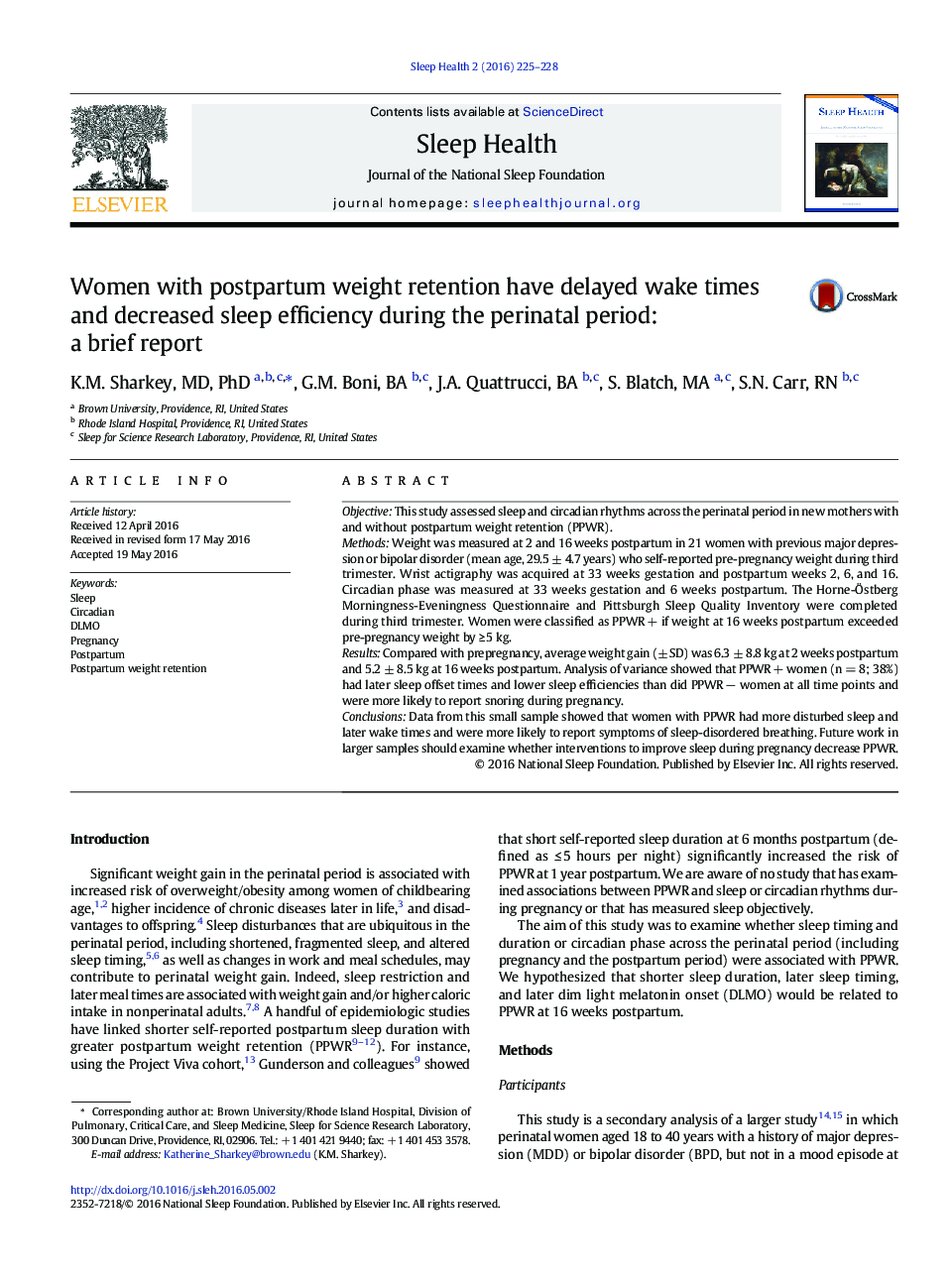| کد مقاله | کد نشریه | سال انتشار | مقاله انگلیسی | نسخه تمام متن |
|---|---|---|---|---|
| 5039613 | 1370360 | 2016 | 4 صفحه PDF | دانلود رایگان |
ObjectiveThis study assessed sleep and circadian rhythms across the perinatal period in new mothers with and without postpartum weight retention (PPWR).MethodsWeight was measured at 2 and 16 weeks postpartum in 21 women with previous major depression or bipolar disorder (mean age, 29.5 ± 4.7 years) who self-reported pre-pregnancy weight during third trimester. Wrist actigraphy was acquired at 33 weeks gestation and postpartum weeks 2, 6, and 16. Circadian phase was measured at 33 weeks gestation and 6 weeks postpartum. The Horne-Ãstberg Morningness-Eveningness Questionnaire and Pittsburgh Sleep Quality Inventory were completed during third trimester. Women were classified as PPWR + if weight at 16 weeks postpartum exceeded pre-pregnancy weight by â¥Â 5 kg.ResultsCompared with prepregnancy, average weight gain (± SD) was 6.3 ± 8.8 kg at 2 weeks postpartum and 5.2 ± 8.5 kg at 16 weeks postpartum. Analysis of variance showed that PPWR + women (n = 8; 38%) had later sleep offset times and lower sleep efficiencies than did PPWR â women at all time points and were more likely to report snoring during pregnancy.ConclusionsData from this small sample showed that women with PPWR had more disturbed sleep and later wake times and were more likely to report symptoms of sleep-disordered breathing. Future work in larger samples should examine whether interventions to improve sleep during pregnancy decrease PPWR.
Journal: Sleep Health - Volume 2, Issue 3, September 2016, Pages 225-228
